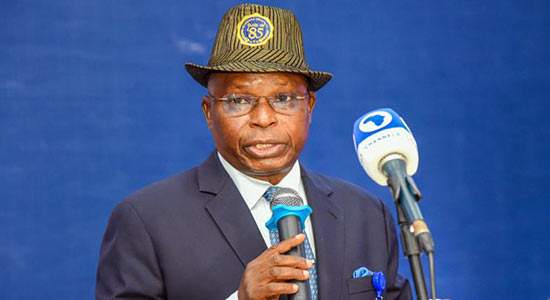The Nigerian Minister of Justice, Lateef Fagbemi, SAN, recently introduced the ‘Plea Bargaining Guidelines for Federal Prosecutors, 2023’ at a sensitization workshop in Abuja. This move aims to streamline the process of recovering stolen assets and proceeds of crime.
Fagbemi highlighted the significance of plea bargaining in expediting the recovery of stolen assets and crime proceeds. He emphasized that plea bargaining, as defined in section 494(1) of the Administration of Criminal Justice Act (ACJA), 2015, involves the defendant and the prosecution reaching a mutually acceptable disposition of the case. This may include the defendant pleading to a lesser offense in exchange for a lighter sentence, subject to the court’s approval.
Despite its potential benefits, Fagbemi acknowledged the prevalent misconception surrounding plea bargaining, particularly in serious and complex cases involving politically exposed individuals or high-net-worth individuals. He addressed the misconception that plea bargaining serves as a soft landing for individuals implicated in looting state and national resources. He emphasized the need for standardized guidelines to regulate and implement plea bargaining provisions contained in the country’s laws.
The newly unveiled guidelines aim to guide the prosecution and the defense in reaching plea bargain agreements aligned with the interests of justice, public policy, and the prevention of legal process abuse. Fagbemi expressed confidence that the adoption of these guidelines will enhance the efficiency of the criminal justice system in Nigeria, reduce the financial cost of prosecutions, expedite trial processes, and facilitate the swift return of stolen assets.
Furthermore, Fagbemi encouraged state authorities to consider incorporating these guidelines, especially in dealing with plea negotiations of federal offenses. He commended the collaborative efforts of prosecuting agencies and stakeholders in developing the guidelines, emphasizing that its implementation would bolster public confidence in the plea bargaining process, reduce case backlogs, and alleviate congestion in correctional centers.
In support of this development, the Chief Justice of the FCT High Court, Justice Husseini Baba-Yusuf, lauded the new guidelines as a valuable addition to Nigeria’s criminal justice system. Plea bargaining, he noted, has become a prominent feature in the criminal justice systems of many jurisdictions globally, including Nigeria.
In conclusion, the unveiling of the ‘Plea Bargaining Guidelines for Federal Prosecutors, 2023’ marks a significant step in fortifying Nigeria’s criminal justice system and enhancing the swift recovery of stolen assets and crime proceeds.
By seamlessly blending the complexities of legal processes with the quest for justice, these guidelines aim to propel Nigeria towards a more efficient and transparent criminal justice landscape, aligned with international best practices.
